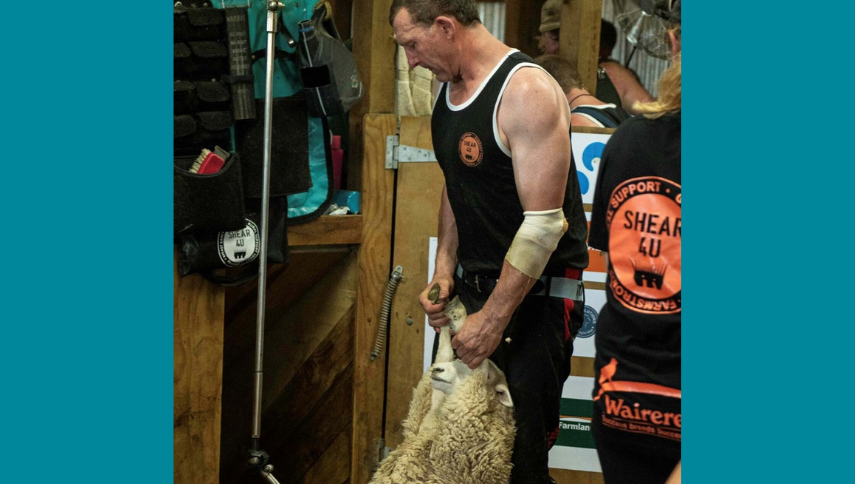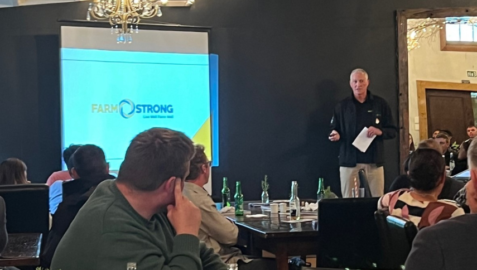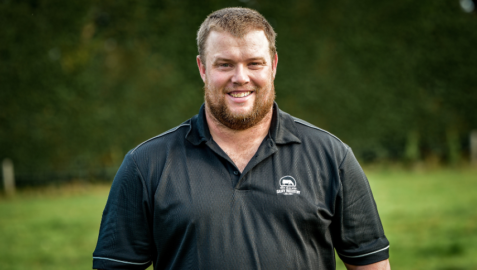
Small Steps to Big Result
Module Overview
Dan Billing and his mates recently completed a marathon shearing event in support of rural communities doing it tough. He talked to Farmstrong about the mental side of such a challenge.
What’s your background Dan? How did you come to be involved in Shear4U?
I’m a senior agri manager for ANZ bank and we have our own sheep and beef farm as well. My involvement started last year, which was a tough one for many people after the cyclones. We ran the first Shear4U event in January 23 in Dannevirke after seeing a similar event being held in the South Island. As a result, my partner Sarah and I decided to do the same here. The success of this event, combined with the cyclones that impacted the Wairarapa region was the catalyst for us to organise the event again, but in support of the Wairarapa region and the charities that were close to the shearers completing the Wairarapa event.
How good are your shearing chops?
None of us are professional shearers, but we can shear well enough to do a good job for ourselves and the farmers we are shearing for. At some point in the past, we’ve all been shearers but now we’re all farmers.
24 hours of shearing over 36 hours is a huge physical challenge, isn’t it? Together, you got through nearly 7,000 sheep in 30-degree heat!
Yes, it’s not just the movement when you’re shearing, it’s being able to put everything back together mentally and physically between the runs, especially at the end. It takes a team effort – from the shearers’ support crews through to the people feeding you or keeping the sheep and shed-organised, they’re all important. There were some pretty dark times. It was tough on the body, tough on the mind, but with the support around us, it helped to complete what we started.
What sort of prep did you do?
We trained for six months to do this. We didn’t just wake up and say ‘right, let’s go shear some sheep for 24 hours’. We got together last August and put a training programme in place to get physically fit with the right nutrition. Then we had a bit of mental coaching as well.
What did that involve?
We got coaching from a guy called Shane Bird, a mental health and resilience coach. He kept it really simple and said, ‘acknowledge that you’ve got this big task in front of you and acknowledge that it’s gonna hurt, and then break it down into small things that are easily achievable.’
Sounds good in theory. How did that work once you got on the board with all those sheep?
Well, we all went in knowing it was going to hurt at some point, so we just accepted that. But then it was about breaking this big challenge into bite-sized achievements that allowed us to go from one good moment to the next.
How does that work in practice? Give me an example.
For me, it was as simple as focusing on a couple of good shearing blows, a good undermine or belly blow, then you focus on doing the next sheep really well. First, you focus on one sheep at a time, then gradually build it up and go from one cutter change to the next. You slowly build up your goals again like that and that’s what gets you through the hurt and mentally tough moments.
So, it’s like a mental reset?
Yes, you take away the big task in front of you and focus on small achievements that can do well so you can achieve a good result. We all went through lows, but our mentality was, ‘it’s not about the next two hours or one hour, it’s about the next sheep in front of me’. That sort of thinking gives you the willpower to keep going.
What about setbacks? How did you handle those?
When something went bad, like I cut myself at one stage and a couple of guys got to the stage where they were physically and mentally at rock bottom, we had the ability to think ‘right I know where I am, now I need to focus on something good that will give me a little bit of a lift.’ Adjusting your thinking like that leads to good things happening. Success breeds success.
What’s the main message you’re trying to get across organising an event like this?
This event was not just about turning up and shearing a whole lot of sheep to raise money. It was about bringing the community together. The whole point was to say to people, look we all go through dark times, and they do affect us, but it’s easier to get through and you will make it through when you have a good team around you. As individuals, we all need that support to keep moving forward. Farming can be a very isolating job, but the cyclones showed that everyone needs people around them during tough times, so don’t hide yourself away at home.
You’re really putting yourself out there at events like this, aren’t you? There were 500 people watching. How does that affect you?
An event like this does make you hugely vulnerable. That’s why completing the last run with my two boys, my partner Sarah, in fact, all my family just felt so special. I had to find a quiet spot out the back of the pens just to hold it all together and calm down. But if people see us being vulnerable, it’s all good, it shows it’s ok to do that.
Do you think conversations around men’s mental health are changing?
100 percent. I think in recent times people have come to realise that you can’t do it all by yourself. If you’re feeling under pressure, you need to understand that and reach out for help and get a good team around you. Farmers are resilient people, but they’re not unbreakable.
Do you think there’s a mental equivalent of being physically fit?
Yes, farming’s not just about your physical capabilities. Most farmers are physically fit every day of the year. But if they don’t have the mental skills to cope when things get rough, it can make a tough situation even worse. Our event demonstrates that understanding what you’re going through, having the right support and using a few of these mental tools to manage ‘the top paddock’ can make a world of difference.
Farmstrong would like to thank everyone involved in Shear4U for a fantastic effort. For free tools and resources on how to manage the ups and downs of farming head to www.farmstrong.co.nz.


